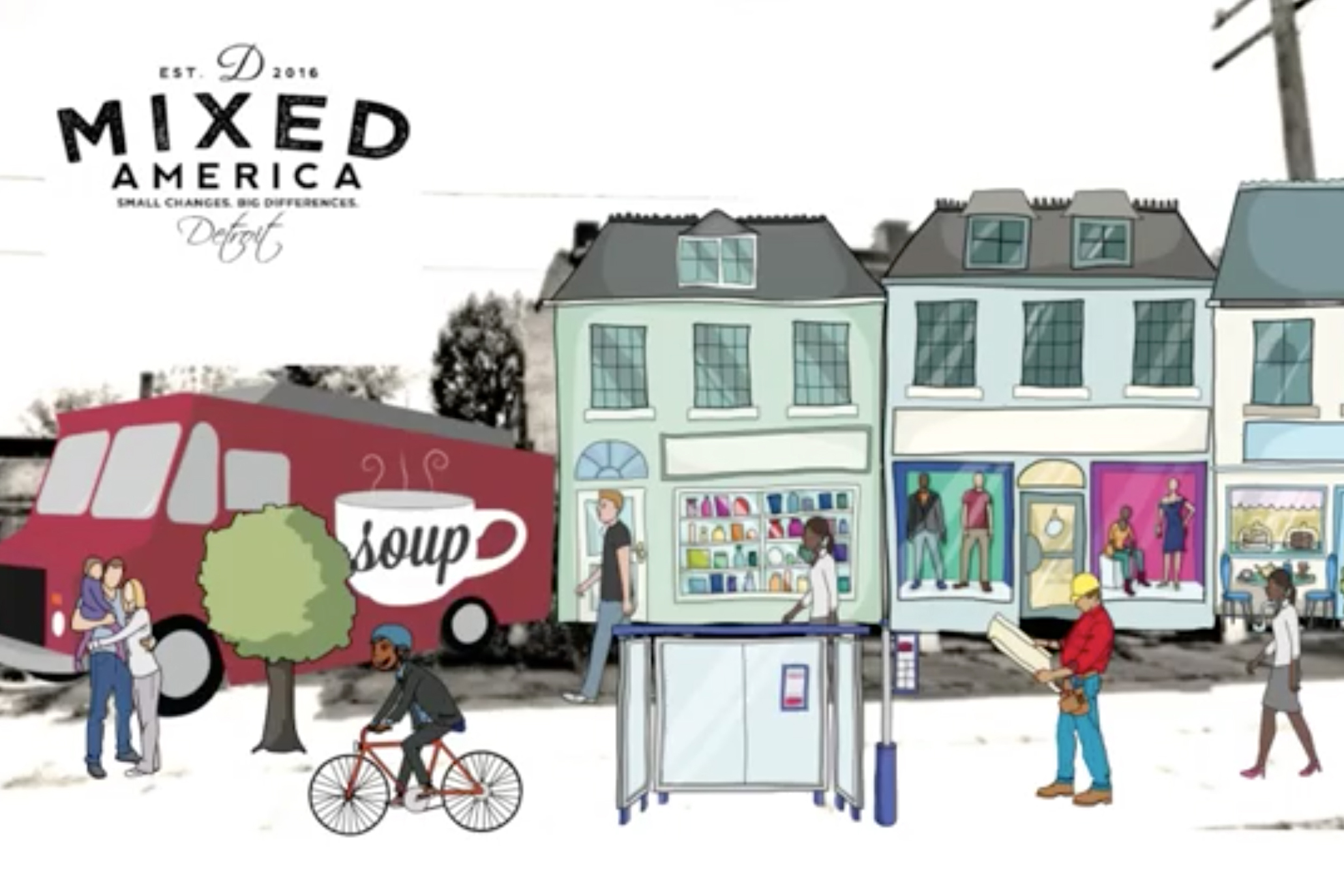A group of UConn undergraduates earned the top prize for its sustainable housing solution in an online competition hosted by Universitas 21 (U21), an international network of leading research-intensive universities.
The U21 Global Ingenuity Challenge asks teams of undergraduates to develop and pitch a solution to a real-life problem in a self-produced video presentation. Members of the winning team each receive a $1,000 scholarship to continue their education on sustainable housing.
UConn students Joan Bosma ’18 (CLAS), Emily Bousaada ’16 (ENG), Hayden Clarkin’ 18 (ENG, CLAS), Brooke Siegel ’18 (CLAS), and Ornella Tempo ’16 (ENG) – who hail from the College of Liberal Arts and Sciences, School of Engineering, and College of Agriculture, Health, and Natural Resources – devised an interdisciplinary solution to the problem of urban decay in the United States, with a specific focus on Detroit, Mich. Their proposal shared top honors with a group from Korea University in Seoul.
“We tried to think holistically about the issues that someone living in Detroit faces, and to offer different hallmarks of what we think a sustainable city is,” says Bosma, who is an environmental sciences major and an economics minor.
A post on the U21 website commented that “University of Connecticut students approached the problem of urban decay in the U.S. by the novel use of microfinance models more commonly associated with the developing world. The Mixed America initiative is a call to action to create business opportunities: through renovating store fronts, providing microcredits to low income people with commercial ideas and a food truck mall which would develop into permanent restaurants over time.”
Clarkin says he enjoyed working on the project with an interdisciplinary team. “It was great to discuss economic development with people of different backgrounds and majors, to hear their ideas and what they learn in classes that I would never be able to take,” he says.
Clarkin, who studies civil engineering and German in UConn’s Eurotech program, says Detroit – a once-booming U.S. industrial hub – serves as a case study for similar problems faced today in Connecticut cities like Bridgeport, Hartford, and New Haven.
“Detroit has lost two-thirds of its population because of urban sprawl and the fact that it based its entire community on one industry,” he notes. “What we were trying to figure out is how to bring back cities that are sustainable and resilient to change in industry.”
University of Connecticut students approached the problem of urban decay in the U.S. by the novel use of microfinance models more commonly associated with the developing world. — Universitas 21
Dubbed the Mixed America Initiative, their solution considers the needs of an entire neighborhood rather than individual homes. By focusing on several core principles, such as jobs, education, food, transportation, and sense of space, the students hoped to offer “a bottom-up approach” to community revitalization, according to Bosma.
The suite of proposed neighborhood revitalization efforts includes renovating vacant buildings as mixed-use developments for housing and businesses; creating an internship program for local high school students; improving public transportation and pedestrian accessibility; and fostering a sense of space with a food truck mall and public artwork.
The plan also offers specific resources for community members to build their own small businesses, such as opportunities to apply for flexible loans, and graduated rent payment plans for new shopkeepers.
“We wanted to enable people that don’t have opportunities and money to build up their wealth, make a living for themselves, and incorporate the culture of the community,” says Bosma.
Associate professor of geography Carol Atkinson-Palombo, associate professor of civil and environmental engineering Norman Garrick, and program specialist for UConn Global Dorothea Hast served as the team’s advisors.




